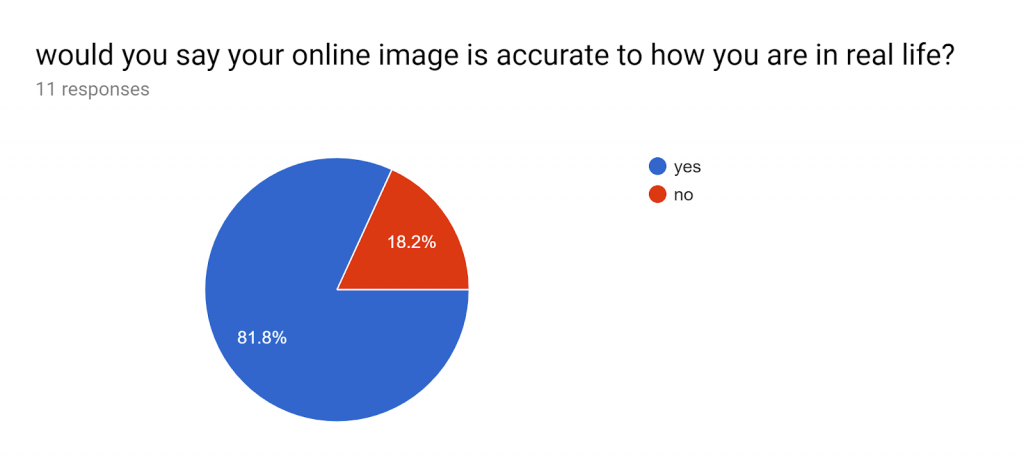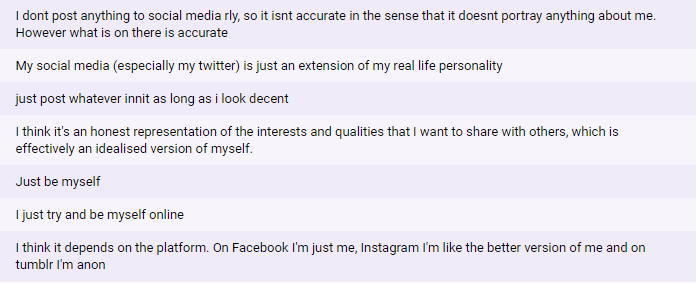Something which has always intrigued me is how we present ourselves online compared to real life. Scrolling through social media it seems as though different people’s online representations and lives vary wildly from one person to the next in terms of the frequency and the content of what they publicly post, and the ways in which they interact with one another. Since online, or at least digital, interactions with each other are becoming more and more frequent in the last few years, and working into an increasing number of situations in our lives, I started to wonder as to how not only these representations and interactions differ from person to person, but also the discrepancy between different versions of ourselves – the offline us, and the online us.
It is often thought, or assumed that the offline version of ourselves is more ‘real’ than the online. The greater ability to control and curate what information about ourselves is visible lends itself to this ability to present a false version of ourselves. Where we can hide our flaws and enhance our strengths is no place for a true and realistic portrayal of what kind of people we are. This is the assumption at least, and it is this that I decided to investigate further.
As a ‘digital native’ I of course consume social media content frequently, I would argue that it is difficult not to to some degree in the current social climate. However I personally tend to observe rather than partake when it comes to public online interactions – I will scroll through a social media feed to see what other people are up to, but it is rare that I will post anything myself; I do not feel that I have much of an online personality. As such I decided to reach out to my peers, some of whom I knew used social media much more than me and thus had an online image, others I knew little of their online habits.
For this, I talked to them in person about their experiences, but then I also sent out a short questionnaire with questions pertaining to their online presence which they could answer anonymously.
interestingly, and contrary to what I would have thought, 82% of responses claimed that their online image was accurate to how they are in real life.

From speaking to peers prior to this, I had come to understand that many of them do in fact curate their online images, choosing only to post images which they feel are their’ best looking’ for example. However, it appears that many do not consider this to be a false representation of themselves. In the follow up question, participants were asked to expand upon their answer, below are some responses:

So while many appear to be aware that what they post online about themselves is not a full representation, they still consider it to be realistic and accurate, despite the conscious omission of particular elements. For example several responses stated that they post pictures of their ‘best self’ – only on days when they feel they are looking good, which therefore cultivates an exaggerated positive presence.

But why not? At the end of the day we come face to face with our faults and flaws every day in the real world, so is there really anything wrong with wanting to present what we think is the best version of ourselves when given the chance?
———
Below are all the extended answers to the open ended questions in the questionnaire:









